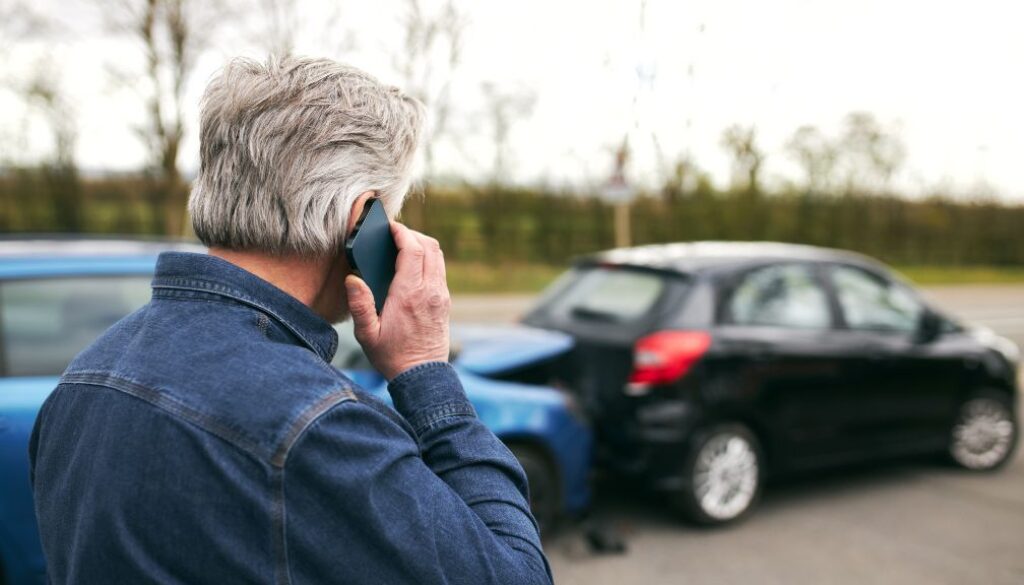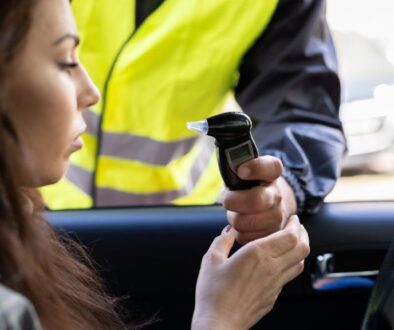What to Do After a Car Accident That’s Not Your Fault
Car accidents can be disorienting, especially when you are not the one at fault. In the aftermath, you may find yourself juggling medical bills, vehicle repairs, and insurance claims, all while trying to heal physically and emotionally. Knowing your rights and taking the proper steps can make a significant difference in protecting your financial stability and legal interests.
If you have been in an accident caused by someone else’s negligence, it is essential to act quickly and thoughtfully. Below, your car accident lawyer, Matthew R. Boren, Attorney at Law, discusses the critical steps you should take to safeguard your rights and secure fair compensation. Here’s what you need to know to navigate this challenging time with confidence.
Immediate Steps at the Scene
The moments immediately following an accident are critical for your safety and your potential case. Taking the right actions can lay the groundwork for a smoother claims process.
- Ensure Safety First
After a collision, check yourself and others for injuries. If it is safe to do so, move your vehicle to the side of the road to prevent additional accidents. Turn on your hazard lights to alert other drivers. If you or anyone else is seriously injured, avoid moving and wait for emergency responders.
- Call 911
Contacting the authorities is essential, even if the accident seems minor. A police report is a key piece of evidence when determining fault. Emergency medical services can assess injuries on the scene, providing documentation that may be crucial for your insurance claim or legal case.
- Be Careful With Your Words
While speaking with other parties or law enforcement, stick to the facts. Avoid admitting fault or making speculative statements about what happened. Simply provide the necessary information and let the investigation determine fault.
Documenting the Accident
Collecting thorough documentation is essential for proving your case. The more evidence you have, the stronger your position will be when negotiating with insurers or pursuing legal action.
- Take Photos and Videos
Capture detailed images of the accident scene, including damage to all vehicles, road conditions, and any visible injuries. Video footage can also help provide a clearer picture of the incident. Don’t forget to document skid marks, traffic signs, and any other relevant details.
- Gather Witness Information
If there are witnesses to the accident, ask for their contact information and a brief statement of what they observed. Witness testimony can be a powerful tool in establishing fault.
- Obtain the Police Report
A police report often serves as an impartial account of the accident. Request a copy as soon as it becomes available, as it can support your version of events during insurance negotiations or in court.
Medical Evaluation and Keeping Records
Even if you feel fine immediately after the accident, it is crucial to seek a medical evaluation. Some injuries, like whiplash or internal damage, may not present symptoms right away.
- See a Doctor Immediately
A prompt medical evaluation can detect hidden injuries and establish a direct link between the accident and your condition. This documentation is invaluable for insurance claims and legal cases.
- Follow All Treatment Plans
Adhering to your doctor’s recommendations not only aids in your recovery but also strengthens your case. Insurance companies may use gaps in treatment as a reason to minimize your claim.
- Keep Detailed Medical Records
Maintain a file with all medical bills, diagnoses, prescriptions, and treatment plans. These documents are essential for calculating your damages and proving the extent of your injuries.
Notifying Your Insurance Company and the At-Fault Driver’s Insurer
While you didn’t cause the accident, your involvement with insurance companies is unavoidable. Proper communication can ensure your claim is handled fairly.
- Notify Your Insurance Company Promptly
Even if you are not at fault, you must inform your insurance provider about the accident. Most policies require prompt reporting to remain valid. Provide them with the information you gathered but avoid speculative statements.
- Contact the At-Fault Driver’s Insurer
If you plan to file a claim with the at-fault driver’s insurance, reach out to them with the details of the accident. Be cautious when speaking with their representatives, as they may attempt to minimize your claim. Your truck accident attorney can handle these communications on your behalf.
- Review Your Policy Coverage
Check your own policy for uninsured/underinsured motorist coverage or medical payment coverage that could supplement your claim if the at-fault driver’s insurance is insufficient.
Car Accident FAQ
How long do I have to file a claim after a car accident?
In Florida, the statute of limitations for personal injury claims is generally two years from the date of the accident per Florida Statutes 95.11(5).
Will my insurance rates go up if the accident wasn’t my fault?
Your insurance rates should not increase if you were not at fault, but it is always a good idea to confirm this with your provider.
What if the at-fault driver is uninsured?
If the at-fault driver does not have insurance, you can file a claim under your uninsured motorist coverage, provided your policy includes it.
Protect Your Rights After a Car Accident
Car accidents are challenging, but knowing what to do can make a significant difference in your recovery and financial stability. By taking immediate action, documenting the incident thoroughly, and seeking medical attention, you set yourself up for success in the claims process.
When the complexities of insurance claims and legal proceedings feel overwhelming, Matthew R. Boren, Attorney at Law, is here to help. With extensive experience advocating for car accident victims, our firm is dedicated to protecting your rights and securing the compensation you deserve. Contact us today for a free, no-obligation consultation when you are ready to take back control of your future.


